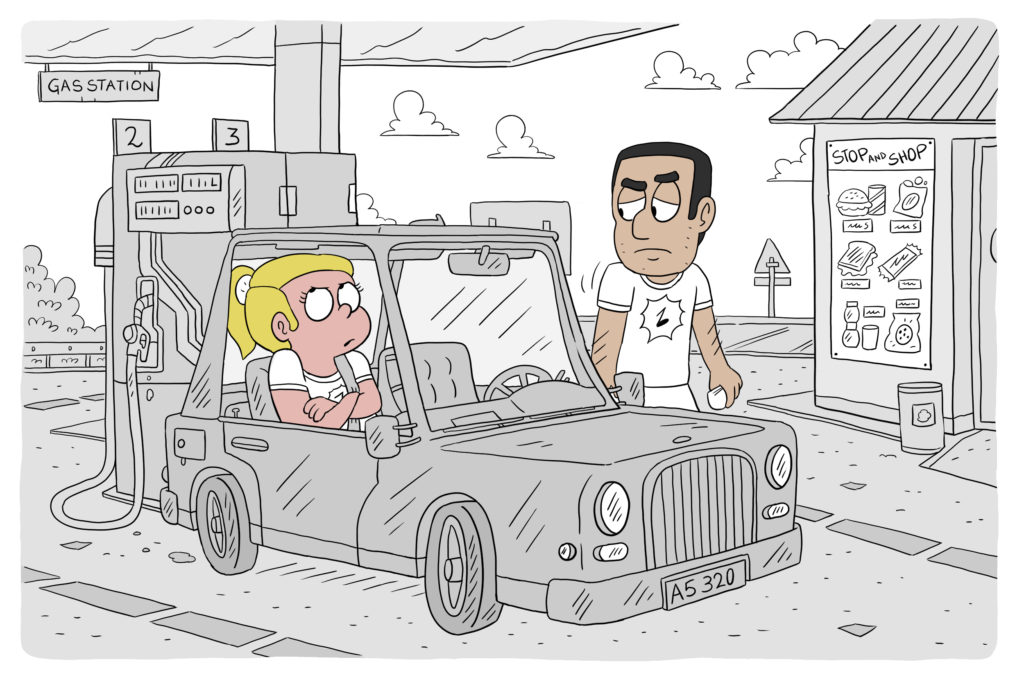
Abdul is from Afghanistan. He likes to spend his free time with Loes, a Dutch friend. Because they like the same music, they often go to concerts together. One day they decided to go to a rock concert in Rotterdam. The drive took about an hour, so they took Abdul’s car. On the way to the concert hall, he stopped at a gas station to buy something. He asked Loes if she wanted a snack or a drink. Loes had already eaten at home and brought her own water bottle, so she politely declined Abdul’s offer. “No, thank you, I already have water.” Abdul insisted, eager to buy something for her, but Loes thanked again. “I said, didn’t I? I already have water!”
Abdul was disappointed and, in fact, angry. But he didn’t show it. He was much quieter during the rest of the ride, though.
The connection
In Afghanistan, which has a strong we culture, it is a good practice to offer something to the person you are with. Especially if you are hosting, even if it is in a car. That’s how you show appreciation for the time you spend together. The fact that Loes thanked Abdul’s, even after he had insisted, Abdul felt as a sign of rejection. Therefore, he was disappointed.
Was his honor also compromised?
Respect and honor often play a role in we-cultures, but also in ordinary friendships and daily events these kinds of gestures have more connotation than people in the Netherlands give them.
But Abdul doesn’t say it. His body language is clear, though. Maybe not so for Loes, because why would someone act grumpy because she doesn’t want anything from the store for a while? In I cultures, people are brought up with the idea that they take care of themselves, they are more self-centered. Since Loes wasn’t hungry or thirsty, she didn’t need anything from Abdul. “No, thank you. She in turn was irritated because he wasn’t listening.
Communication is always the key in any relationship. And in cross-cultural communication, it’s good to reflect a little longer on what just happened.
Loes can go out of her I mode for a moment and make the effort to explain that she had an extended lunch with her family and that’s why she doesn’t feel like eating or drinking anything. And if not, she can say, “How sweet, but can I wait until the concert?
And Abdul may get out of the we mode and just tell Loes that friends in Afghanistan are continually concerned with hospitality, even if the reception is in the car. That’s how he was raised.
Want to read more about culture dimensions?
Important to know
This anecdote is based on stories shared with us. Connect2Us strives to highlight the dilemma from both sides and not to label people or suggest that one or the other should behave differently. We see in our daily cross-cultural work that awareness by those involved is enough to move toward each other without pretending to be very different. Connect2Us wants to help readers recognize and avoid prejudice. Read about prejudice, discrimination and racism here.

